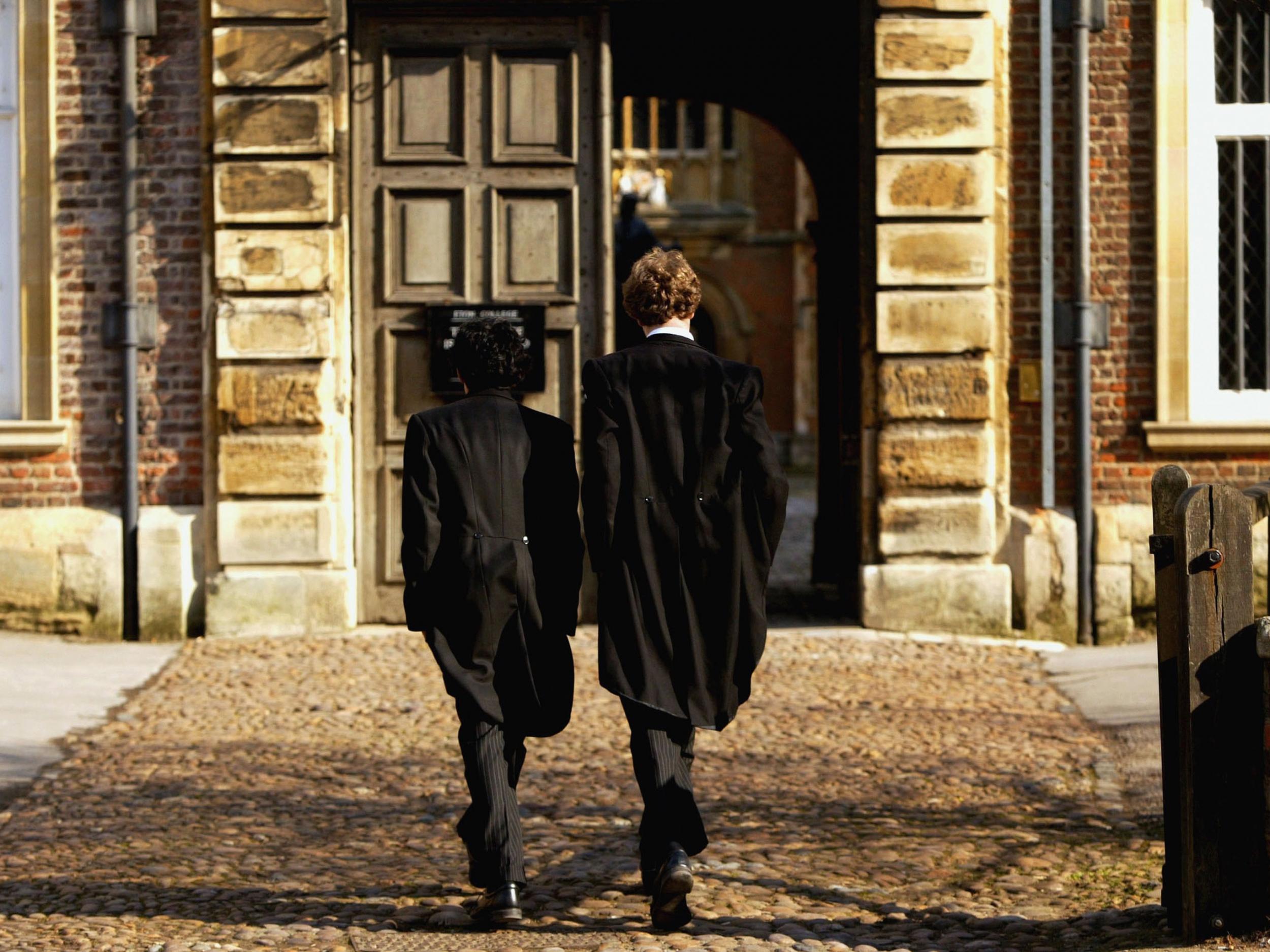Eton apologises to first ever black pupil who was banned after calling out racism
Dillibe Onyeama wrote book detailing how fellow students would ask him ‘Why are you black?’, ‘How many maggots are there in your hair?’ and ‘Does your mother wear a bone in her nose?’

Your support helps us to tell the story
From reproductive rights to climate change to Big Tech, The Independent is on the ground when the story is developing. Whether it's investigating the financials of Elon Musk's pro-Trump PAC or producing our latest documentary, 'The A Word', which shines a light on the American women fighting for reproductive rights, we know how important it is to parse out the facts from the messaging.
At such a critical moment in US history, we need reporters on the ground. Your donation allows us to keep sending journalists to speak to both sides of the story.
The Independent is trusted by Americans across the entire political spectrum. And unlike many other quality news outlets, we choose not to lock Americans out of our reporting and analysis with paywalls. We believe quality journalism should be available to everyone, paid for by those who can afford it.
Your support makes all the difference.The headmaster of Eton College has apologised to its first ever black student to graduate after it emerged he had been banned from going back for almost 50 years because he wrote a book detailing his experience of racism there.
Simon Henderson said Dillibe Onyeama, who was a pupil at the exclusive private school in the 1960s, was now welcome to visit any time.
The ban was initiated in 1972 after the Nigerian writer published a memoir about the daily discrimination he faced while a student.
It came to light again this week amid ongoing discussions surrounding institutional racism in British society sparked by a wave of Black Lives Matters protests.
Mr Henderson, who has been headmaster at the £40,000-a-year school since 2015, said: “We have made significant strides since Onyeama was at Eton but – as millions of people around the world rightly raise their voices in protest against racial discrimination and inequality – we have to have the institutional and personal humility to acknowledge that we still have more to do.”
He told the BBC he would now invite the former pupil to the school in order to apologise and “to make it clear that he will always be welcome at Eton”.
In response Mr Onyeama said he would be willing to accept the apology in person – provided his air fare is covered, The Guardian reported.
“My attitude is that it is not necessary. It was neither solicited nor expected, it was not fought for. There’s no obligation on the part of Eton college to apologise for anything. So really, to me, it is a non-issue”, he added.
In his book – written when he was just 21 – Mr Onyeama claimed his time at the Berkshire school saw him repeatedly asked questions such as “Why are you black?”, “How many maggots are there in your hair?” and “Does your mother wear a bone in her nose?”
When he achieved good academic results, he wrote, he was questioned over cheating.
He received an official letter shortly after the memoir was published in 1972 informing him that, as a result of its contents, he was banned from visiting Eton – an exclusive school where 20 British prime ministers, including Boris Johnson, have been educated.
Mr Onyeama told the BBC he had not been looking for an apology and it did not change his view of Eton, which was largely positive.
But, he added, the apology “compels the recognition that prejudice on the grounds of colour or race dehumanises its victims in a way that ordinary forms of prejudice do not”.
The exchange came as figures show the UK’s most exclusive educational institutions still have some considerable way to go to tackle inherent racism.
New data shows the number of black students attending the University of Oxford has increased – but that fewer than five black undergraduates have been recruited in 12 of its 45 colleges over the last three years.
The proportion of British students with Black African or Black Caribbean heritage admitted last year increased from 2.6 per cent to 3.2 per cent but the figures at some colleges and on some courses remained disproportionately low.
Join our commenting forum
Join thought-provoking conversations, follow other Independent readers and see their replies
Comments